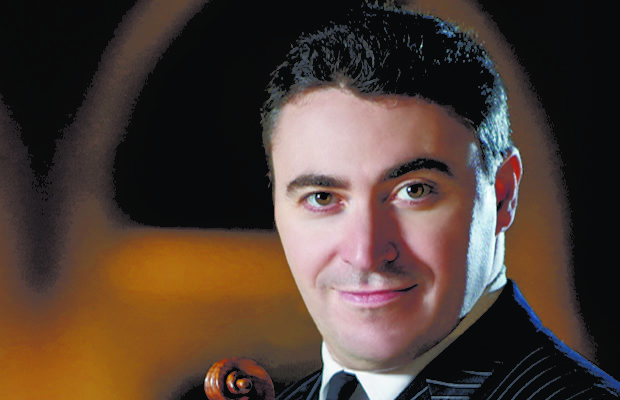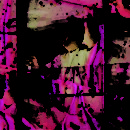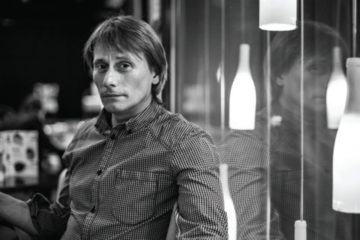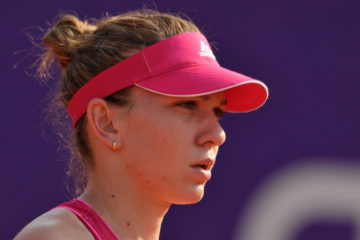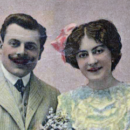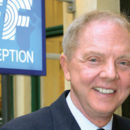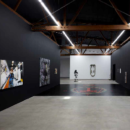In his early 30’s he was considered one the best violinist in the world. Then, his right shoulder was damaged while weightlifting. The sparkle in his mainstream performances went missing. In 2008, aged 34, he gave up his solo career, preferring to train as a conductor. In 2012, he gave a comeback recital in Brussels, followed by another in London where he played Bach’s D minor Partita and Beethoven’s Kreutzer Sonata. The world was at his feet. Again.
We had the chance to talk to him. We discovered the relaxed and pleasant personality behind the worldwide acclaimed violinist. But, the hard work, professional approach and the stubbornness of not compromising on the quality of music for commercial purposes made Vengerov what he represents today.
You travel to Bucharest quite often. Have you noticed any changes in the musical landscape in the last 10 years?
I have been very fortunate to be in Bucharest almost every year and to several editions of the Enescu Festivals. The cultural life develops quite quickly in Bucharest and it is impressive that the Romanian government supports culture and creates a framework for all the great musicians to come to Romania. Bucharest becomes in September the center of the music world which is fantastic. Romania has thus already established a great cultural tradition which is developing so quickly. For me George Enescu is my idol, because he was not only a great violinist but also a great teacher.
In the ’50s Pablo Casals said that young violinists of the time were not such strong personalities in comparison to the 1900 generation – Enescu, Szigeti or Kreisler. Do you believe there are obvious differences between successive generations of violinists?
Every older generation has always something to complain about the new generation. It has always been like this. It is true that if we look at the history: Oistrah, Heifetz, Menuhin, were not composers but Kreisler, Rahmaninov were composers and from this point of view it is a decline. The art of performance, though, has grown immensely and its technicality has developed hugely in the last 100 years. I am really hoping that we will have again new generation of musicians rounded musicians like Enescu, Paganini, Liszt. However, there is a great decline of the recording industry. Musicians are now recording for fun, for themselves because distribution is so bad. The internet has changed everything. This is the negative side. The positive side is that good musicians try to leave something behind and this relates with composers. We do not know how Paganini was playing but due to his incredibly complex work as composer we know that he was extraordinary.
We live in a digital era and everything is changing very fast around us. Will classical music change too in the future decade?
On the negative side of the technology development is that intellectual rights could be easily stolen. Every time we go on stage everybody can record the concert with a mobile and put it on Youtube and this is completely wrong. It is wrong because nobody has asked the permission of the artist and any recording should be the property of the artist or the company. The respect for the people who produce art should come first. This awareness has been lost. The fall of intellectual rights has been provoked and companies, like Youtube, which have interests have allowed this to happened. To take the intellectual rights from the artist and to give it to people for free is unfair and not in favor of anybody – it is bad for the artist who produces it and it is bad for the people who watch or listen to it because the quality of the recording doesn’t even come close to the quality of the music produced in a professional studio. There are these dual challenges related to technical development: we can record in a fantastic environment and produce phenomenal music but there are no budgets for that because of the stealing of intellectual rights. The budgets allocated for recording exceptional music have fallen dramatically. So, we use lower budgets for recording in shorter time and we sometimes record live, which is wonderful, but nothing can come even close to recording in a professional studio. Even 20 years ago big companies had 3, 4 even 6 months to record an opera performance. Today it is two weeks. We do have now technical possibilities to record amazing pieces but we do not have budgets because everything is free and available. Great budgets have developed for hundreds of years and now in 10 years the internet has destroyed them. Now, it is all about life, it is about momentum and not about leaving something to the posterity.
What would you like to play and you never had the chance so far?
I have so much repertoire that I want to play and record. I am thinking of Szymanowski concerto or Berg, Bartok, Walton violin concertos There are at least ten concerts that I still want to learn.
Which violinist from the XXth century would you have liked as a partner in playing Bach’s Concert for two violins?
There were a great generation of violinists last century. I would name only a few: David Oistrah, Yehudi Menuhin, Joseph Szigeti, Jascha Heifetz
You are a worldwide acclaimed violinist and your career has been build up based on enormous work. Beyond that, do you think that good PR and luck have played a role in achieving your international recognition?
I have never had too much PR and I think this was a great luck for me. If you have a lot of PR, there is a danger. The PR people are looking at what is good for the business but this might not be good for the art. There is nothing wrong with being commercial and I would like people to promote my art but I would never ever compromise on the quality of my music. Due to the education I have and to the great masters I have learned from, I own them something, I cannot play Bach with non classical musicians Even without PR at all, I know that I would still make it because I have something to say. I remember when I signed my ten years contract with Teldec, which later became part of Warner company, I had not seen any poster of myself in the shops and when I asked why they were not doing the PR I deserved they said that they don’t need to do PR for me because I sell anyhow, because people buy my records. My PR was my work, my art. I also decided not to create my own label and to play however I feel like through the Vengerov Music Vision – VMV. My first DVD is coming soon is live from Moscow and will be launched in Japan.
How do you prepare for an important concert? Do you have pre-concert habits or maybe superstitions?
I do not have any superstitions. I rely exclusively on my work, on 200% knowledge of the works that I am playing and of course on the mental preparation that comes with it. You have to be mentally ready and to enjoy the music on stage.
